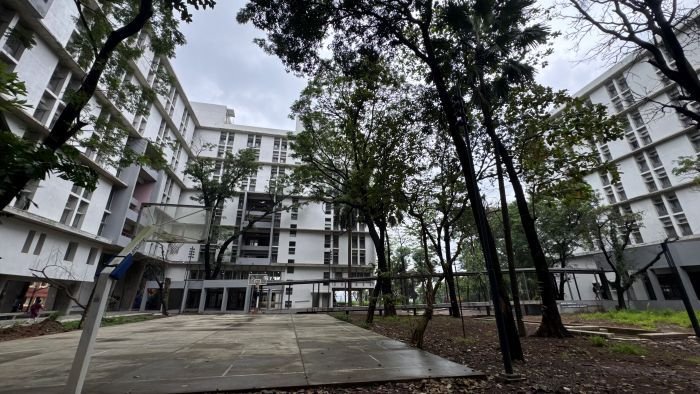
Amol Maheshwari, Chief Distribution Officer, Fibe
 Fintech alternatives for education are resolving issues with traditional finance methods. New and emerging fintech education solutions are progressively filling the funding vacuum for education. As technology evolves, unlike traditional institutions which take time in processing Edtech loans, digital app-based lending solutions make it more accessible and user-friendly with flexible repayment models that suit learners across categories.
Fintech alternatives for education are resolving issues with traditional finance methods. New and emerging fintech education solutions are progressively filling the funding vacuum for education. As technology evolves, unlike traditional institutions which take time in processing Edtech loans, digital app-based lending solutions make it more accessible and user-friendly with flexible repayment models that suit learners across categories.
The education ecosystem has been rapidly changing over the last few years. Because of technological advancements after the pandemic, physical education modes have rapidly shifted to online classrooms. The pandemic situation in the world has forced even the most reputable universities and schools to turn to digital platforms. This levelled the playing field for edtech startups leveraging the digital space to provide education, initially resulting in tremendous growth for edtech companies. As per the recent report by Technavio on the Online Education Market, ‘India’s online education market is set to grow at a CAGR of 21% between 2020-24 to reach a market size of US$ 14.33 billion.’
Learning has become an ongoing process. It does not limit to schooling or college degrees anymore. Upskilling and reskilling are now in great demand for professional and career development. This has resulted in constant innovation like study now and pay later in the education fintech space as well. Education finance is still an untapped segment as there has been traditionally a lot of reluctance both from the lending institutions as well as students. Now, with accessibility and availability of education loans becoming somewhat easy, there is a growing confidence in families in supporting children to chase aspirations and interests through higher education.
In this welcome scenario, there are some key aspects that actually accelerate the growth of fintech solutions in the educational sector:
- Accessibility to Affordable Education – Most traditional financial institutions have traditional structures to approve fewer categories of student applicants and limited geographic coverage through their Branches. However, the fintech industry has completely altered this scenario. Fintech platforms’ financing solutions are reaching a broader demographic segment through their broad-based underwriting policies thereby impacting Students across categories from Tier 1 to Tier 4 cities
- Customized Financing – To meet the needs of students, parents, and institutions, the emerging education industry requires customized financing solutions. When developing financial products, it is critical to consider different student segments, course outcomes, and institution performance. Fintech funding platforms are heading in this direction. Fintech platforms address current market demands and create optimal financial products. Some platforms, for example, have created loan products that require students to pay a low EMI during the course. When you finish your education and get a job, you can also pay higher EMIs. It was created for students keeping in mind their present financial conditions. Furthermore, the right lending product provides a win-win situation for all parties involved. Fintech platforms integrate educational institutions into the funding ecosystem. The courses offered are value-based and comprehensive, which helps to ensure students’ ability to repay.
- Agile, Flexible and Scalable Infrastructure – Traditional financial institutions adhere to a rigid system that does not accommodate the complex structures of the educational system. Whereas fintech platforms offer a flexible approach that can cater to students’ diverse financing needs based on their educational preferences. A non–paper creative app helps students to have easy access to lending institutions, seek instant approvals and complete the loan process in minutes around the clock.
- Deeper Penetration into Bharat – India needs innovative technologies that can take educational development to tier 2 and tier 3 cities of the country. Digitization and technology have reached every corner of our lives and this needs to be customized to tackle inefficiencies. The revolution that technology can play in such a setup is immense. Today with 4G and 5G (coming up), Mobile penetration has reached the masses wherein people may have more Mobile connections than Bank Accounts. EdTech firms are also making the best use of this opportunity. They are seeking maximum alliances with Fintechs to promote affordable education across student segments. Present-day Fintech apps offer differentiated EdTech offerings, and the market incentivizes users to use and spread the word.
Bottomline
The education ecosystem has evolved with increasing job opportunities in areas as diverse as graphic design, hospitality, and interior design. Once confined to schools and colleges, education now has its roots in competency-based courses. The growing demand for professional education in aviation, nursing, soft skills, vocational training, and educational technology courses is creating a huge demand in the education fintech sector.
This improved, targeted approach democratizes the finance offerings and thereby caters to a larger student ecosystem with flexi-customized solutions. This gives equal opportunity to learn, have quality education and help in timely upskilling.
(Fibe (previously EarlySalary) is a consumer lending apps focused on young, aspirational, and tech-savvy Indian consumers. It is an industry leader in the salary advance segment and offers a 100% digital loan application process)








